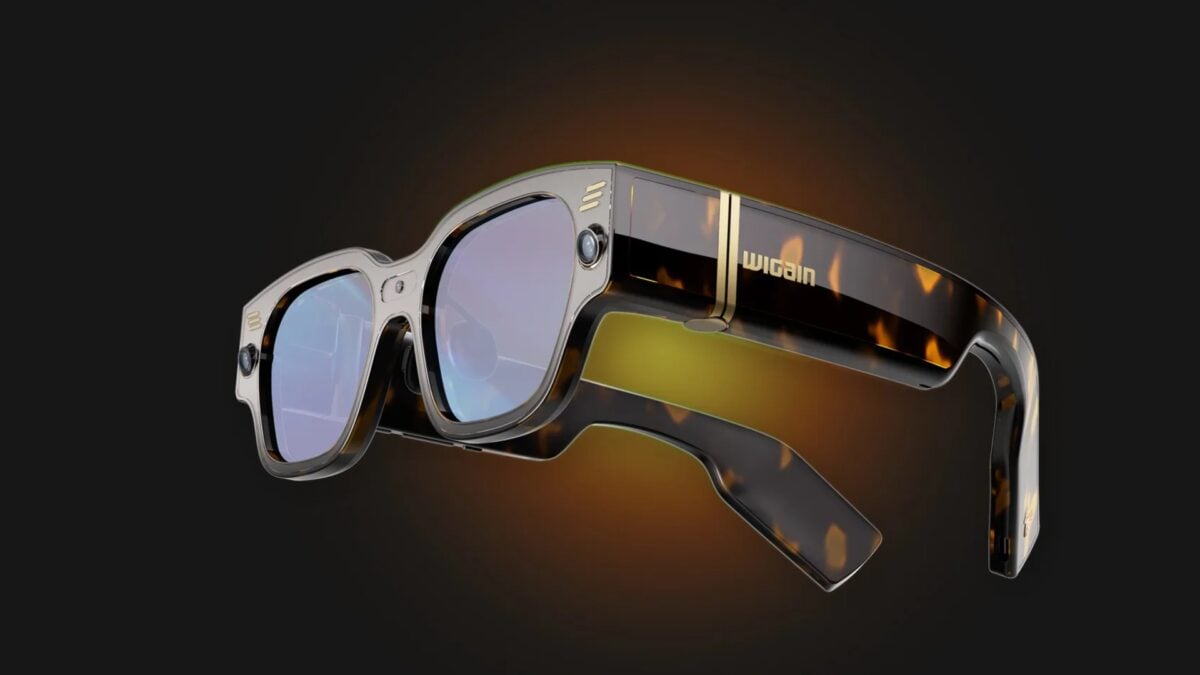China’s Thriving AR Glasses Market Makes Me Believe Meta Is Done For

I know I’ve said it 1,000 times, but AR glasses are hot right now, and arguably no one is more on fire than China. While the U.S. is patiently waiting for Meta to release anything even resembling its prototype AR glasses, Orion, China seems to be making strides day by day. The latest example? These glasses with full-color optical waveguide lenses and 900 nits of brightness from a Chinese company called Wigain. In plain speak, they’re full-color AR glasses with enough brightness to actually use outdoors in the real world. And the kicker here is that Wigain says they’re actually “mass-producible.”
The way Wigain talks about its glasses, they sound an awful lot like the Orion-based glasses Meta is slating for 2027, except they’re actually a real thing you can buy right now, or at least pre-order. Wigain says its AR glasses, called Omnision, have a 50-degree field of view, use Sony’s micro-OLED screens, and have an 800p resolution with a full-color display. They’re powered by Qualcomm XR2 Gen 1, too, which should make them fairly snappy. If you want more power, there’s also a Wi-Fi 7-enabled “station” that uses Gen 2 of the same Qualcomm chip. Wigain is claiming six hours of battery life—fairly solid for glasses that claim to do this much. Looks-wise, they leave something to be desired, but Wigain did manage to get the glasses down to a serviceable weight of 120 grams.

Don’t get me wrong, I’m skeptical of Wigain’s claims here, but the fact that it recently demoed the glasses in real life at an Expo in Osaka, Japan, and they have a real launch date and pre-orders is forcing me to take the Omnison glasses seriously. There’s also the fact that Wigain doesn’t seem to be alone in its success with pushing the ball forward on XR. China’s Xiaomi, as I recently covered, just unveiled a pair of XR glasses that pretty much kick the Meta Ray-Bans’ ass. They aren’t AR glasses, to be sure, but they double the Ray-Bans’ battery life, are capable of first-person video calling, and can allegedly record video for 45 minutes as opposed to the Ray-Bans’ three minutes, and they even have a mobile payment feature that uses QR codes and voice verification. Oh, and they cost about the same as Meta’s competitor.
Listen, I’m not a market analyst or anything, but if I were a betting man and you asked me to wager which country’s AR glasses are going to actually succeed from a technical standpoint, I’m going with China all the way here. And as someone who’s been covering technology for a while now, that story is as old as time—and not just relegated to XR glasses. EVs in China, for example, are not just incredibly cheap, but also arguably more advanced than the ones sold here in the U.S. On paper, Chinese automakers like BYD are winning by a mile, though the U.S. market is obviously a whole separate entity for political reasons, and vice versa. Either way, I, as a consumer, am once again on the other side of the coin, stateside, wishing that U.S. companies would take some cues from their Chinese counterparts. Because, damn, Wigain—if its glasses are the real deal—just beat Meta’s Orion to the punch.



- CỘNG ĐỒNG
- News
- Tech
- Food
- Causes
- Personal
- Art
- Crafts
- Dance
- Drinks
- Film
- Fitness
- Juegos
- Gardening
- Health
- Home
- Literature
- Science
- Networking
- Party
- Religion
- Fashion
- Sports
- Stars
- Xã Hội


